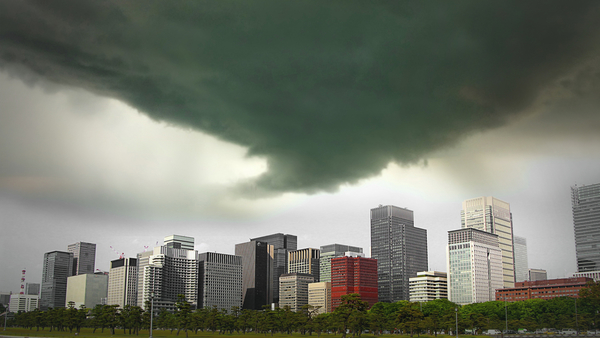 CUs must help with disaster recovery efforts.
CUs must help with disaster recovery efforts.
Disaster recovery plans are standard business practice for most financial institutions. The regulators require certain templates and back-up systems to ensure business continuity. A planned response for social disaster recovery is critical as well. Social disasters can be so intrusive, widespread and damaging to an area, they can alter the face of the community radically for potentially longer than a few weeks or even months. Think 9/11. Think Katrina, Harvey and Irma. Think Las Vegas and school shootings. Think California wildfires. What can credit unions do for their communities aside from the transactional aspects of the member relationship? Consider a system for social disaster recovery.
Redwood Credit Union President/CEO Brett Martinez told me regarding the California wildfires, “We've been affected in every way imaginable, and probably some you can't imagine.” About 7,000 homes were destroyed within a three-mile radius of RCU's headquarters, some financed by the credit union. Twenty-three of the homes caught in the devastation were those of RCU employees. Plus 150 credit union employees were evacuated from their homes. The credit union put employees up in hotels, bought them food and even provided a temporary daycare for employees while schools were shut down a few weeks.
Ventura County Credit Union was also affected, with smoke so bad the credit union closed its headquarters twice, according to CEO Joe Schroeder, in addition to half of its eight branches. “While you want to serve members, the health of the employees takes top priority,” Schroeder noted. Heavy smoke is literally a moving target, so you can't plan for everything. He added advanced planning allows you the time and mental capacity to make decisions regarding the immediate situation at hand.
The broader issue, however, is all the people in the community who've been displaced from their homes and jobs. Many families are anxiously awaiting to rebuild their homes with their insurance checks following the California wildfires, but it could be a couple of years because the area was already experiencing a shortage of contractors. And what of those without insurance or at least not enough? Hundreds or possibly thousands of landscaping and pool cleaning jobs vanished practically overnight with those homes. And what will become of those working the fields and in hospitality services where the fields and tourism are devastated? What of the 150 businesses destroyed in the California wildfires and all their employees? The overall impact can affect the complexion of the community and a credit union's field of membership for some time.
PSCU, based in Florida, has experienced its fair share of disasters and works with credit unions that have been affected. Lynn Heckler, chief talent officer for the CUSO, pointed to Katrina and the extreme lack of planning in that situation, including the local governments. Private industry had to step in to pick up the slack.
What I see is that private industries, and more specifically credit unions, can play a major role in catastrophic scenarios beyond the short-term fixes. For example:
Prepare Credit Union Volunteers: Things get crazy quickly and the CEO must focus on dynamic decision-making to ensure immediate response to each situation. Consider beforehand what the volunteers are thinking and how they can be engaged to support members, and develop a communications plan that includes them in the process.
Use Communitywide Communication Tools: Prepare and implement a phone tree, alert software and check-in safety buttons similar to Facebook's. Update practices to reach members, staff, volunteers and their relatives. Activate emergency technology and communication tools for the benefit of the community.
Extend Employee Assistance Programs to Members: Many include health advocacy ranging anywhere from grief counseling to basic health information to billing issues. The plan may also cover financial counseling and limited legal services. These may be helpful in the wake of a disaster.
Implement or Ramp Up Business Lending: Help the community rebuild by lending to re-stock auto dealers, construction and other businesses' inventory so employees can get back to working again.
Invest in Mobile Banking and Other Non-Location-Specific Services: In all the chaos, your members need to know the status of their funds and loans, so make it easy for them to contact you via email, contact centers and shared branches. Be the one part of their life that is stable.
Partner: Engage with the schools, city staff, country resources and other community service providers before disasters strike. Be on call! RCU has an existing 501(c)(3) for ongoing efforts, but it's bulked up for major disasters. RCU foots the bill for administrative costs, so all donations go to victims. RCU partnered long ago with California Senator Mike McGuire and the local paper, The Press Democrat, to coordinate disaster relief for the community, and RCU's website includes useful content such as check distribution information, fire recovery data, mortgage loan FAQs and other relevant resources.
Shop Local: Ventura County CU bought and encouraged its employees and members to buy local to support their community businesses because the fires occurred during holiday shopping time.
Credit unions were founded upon the principle of people helping people at a time when banks didn't serve the average person. That access to service raised up the financial lives of many individuals and, therefore, their communities. The same holds true for modern consumers in both short and long-term social crises. We've moved beyond those humble roots, but service and collaboration are still at the heart of credit unions' philosophy, and social disaster recovery must be a part of that.
 Susan Mitchell
Susan MitchellSusan Mitchell is CEO of Mitchell, Stankovic & Associates. She can be reached at 855-362-2002 or [email protected].
© Touchpoint Markets, All Rights Reserved. Request academic re-use from www.copyright.com. All other uses, submit a request to [email protected]. For more inforrmation visit Asset & Logo Licensing.






